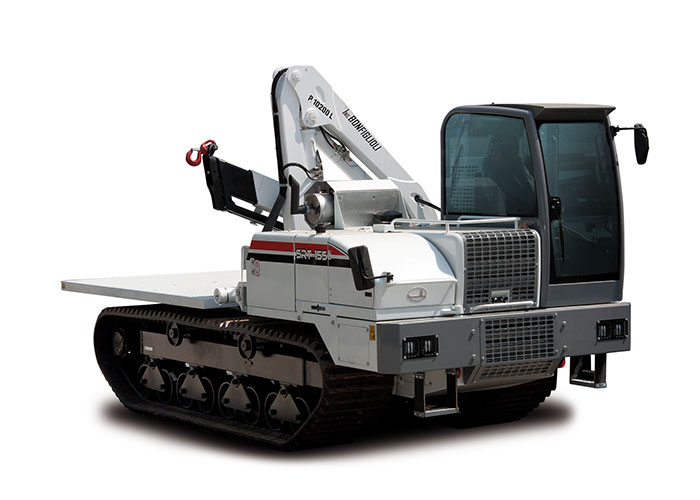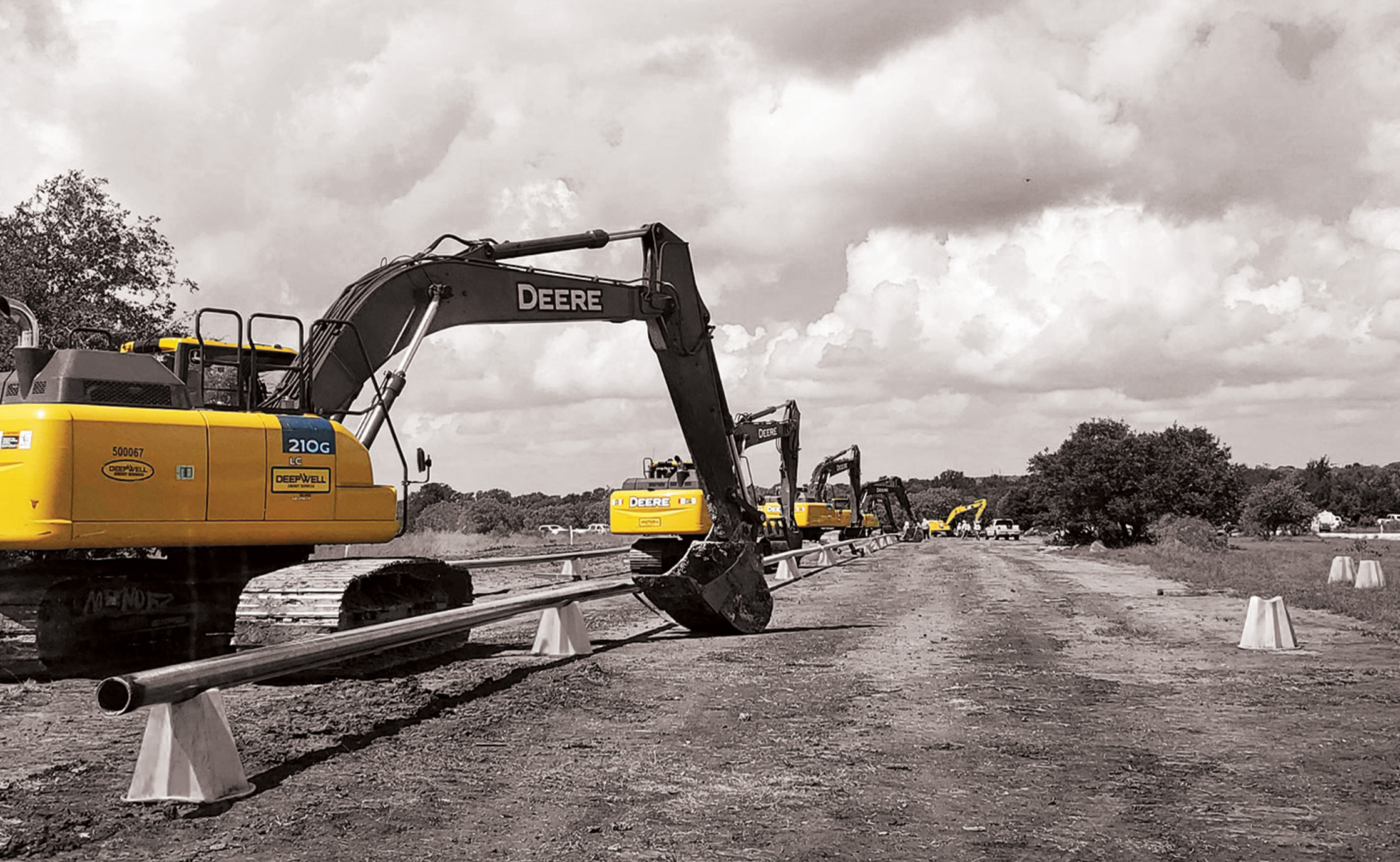A Comprehensive Overview to the Different Sorts Of Oil Field Equipment and Pipeline Equipment Available
The oil and gas sector depends heavily on specific devices for efficient removal and transport. Numerous sorts of machinery, from piercing rigs to storage space tanks, play essential functions in this complex process. Each tool serves unique features that add to general functional success. Recognizing these elements is vital for any person entailed in the field. As the industry advances, so also do the innovations that sustain it. What innovations are on the perspective?

Drilling Rigs: The Backbone of Oil Exploration
Drilling rigs work as the necessary equipment in the domain name of oil expedition, allowing firms to access hydrocarbon books hidden deep beneath the Planet's surface. These rigs can be found in different kinds, consisting of land rigs, offshore rigs, and mobile devices, each created to run in particular atmospheres. Geared up with advanced innovation, piercing rigs can pass through geological developments with precision, ensuring reliable source extraction. The structural integrity and functional abilities of these rigs are crucial, as they need to hold up against severe conditions and considerable stress. The option of a boring gear influences the overall task cost and timeline, making it a crucial consideration for oil firms seeking to maximize their exploration initiatives and maximize performance in their operations.
Pumps: Necessary for Liquid Motion
In the oil extraction process, the duty of pumps is substantial, promoting the activity of liquids throughout different phases of manufacturing. Pumps are vital for transporting crude oil, water, and other fluids from underground storage tanks to the surface and after that through pipes to refineries. They are available in numerous types, consisting of centrifugal, favorable variation, and submersible pumps, each serving certain functions based upon the fluid attributes and operational needs. Centrifugal pumps are commonly made use of for their effectiveness in high-flow applications, while positive displacement pumps excel in taking care of thick fluids. The option of pump impacts overall effectiveness, operational safety, and upkeep prices. Correct choice and maintenance of pumps are vital for enhancing production and minimizing downtime in oil field procedures.
Shutoffs: Controlling Circulation and Pressure

Shutoffs play a vital duty in managing the circulation and stress of fluids within oil fields and pipelines. Different sorts of shutoffs serve distinctive applications, each developed to satisfy certain features fundamental for effective operation - Superior Oilfield Rentals Texas. Recognizing the qualities and usages of these shutoffs is essential for enhancing system performance and safety and security
Kinds of Valves
Important components in oil area procedures, valves play a critical duty in controlling the flow and pressure of fluids within pipes and equipment. Numerous sorts of shutoffs are made use of to satisfy the varied requirements of oil and gas production. Common kinds include entrance valves, which supply a straight-line flow and marginal stress decline; world valves, understood for their throttling capabilities; and round shutoffs, identified for their fast on/off control. In addition, check valves prevent heartburn, while butterfly valves provide a light-weight option for managing flow. Each valve type is developed with specific materials and setups to withstand the extreme conditions commonly found in oil fields, making certain integrity and efficiency in operations. Comprehending these kinds is vital for efficient system administration.
Valve Applications and Functions
While different types of valves serve distinctive functions, their main applications focus on managing flow and stress within oil and gas systems. Valves such as gateway, globe, and ball valves control liquid activity, ensuring peak efficiency and safety and security. Gateway shutoffs are commonly used for on/off control, offering marginal flow resistance. World shutoffs, on the other hand, deal exact flow regulation, making them suitable for throttling applications. Round valves are favored for their quick operation and limited sealing capacities. Additionally, stress safety valve are important for preventing system overpressure, protecting equipment stability. In general, the appropriate selection and application of shutoffs boost operational effectiveness, making certain the trusted transport of oil and gas via pipes and handling centers.
Compressors: Enhancing Gas Transport
Compressors play a critical role in the effective transport of natural gas, guaranteeing that it moves smoothly via pipes over cross countries. These devices increase the pressure of gas, enabling it to conquer friction and elevation adjustments within the pipeline system. In addition, compressors help with main sewer line keeps clogging the balancing of supply and demand, fitting changes in consumption and manufacturing prices. Various sorts of compressors are employed in the market, consisting of centrifugal, reciprocating, and rotary screw compressors, each offering distinct benefits based upon the operational demands. Routine maintenance of these compressors is essential to maximize effectiveness and lessen downtime, eventually adding to a reputable gas transportation network. Their important feature underscores the relevance of compressors in the overall oil and gas facilities.
Storage Tanks: Safe and Reliable Fluid Monitoring
Effective transportation of all-natural gas relies upon numerous support group, among which is the appropriate administration of storage tanks. These storage tanks play a crucial duty in securely having fluids, guaranteeing that functional efficiency is preserved while reducing ecological threats. Constructed from long lasting products, they are created to hold up against high stress and harsh elements. Properly sized and strategically situated, tank assist in the smooth flow of gas and other liquids, avoiding bottlenecks in supply chains. Regular maintenance and tracking are critical to discover leaks or architectural issues, promoting safety and security and conformity with regulative standards. Inevitably, the reliable monitoring of tank is vital for the overall integrity and reliability of the oil and gas sector's liquid handling systems.
Pipeline Solutions: Facilities for Transport
Pipeline systems offer as the foundation of the oil and gas market, promoting the effective transportation of hydrocarbons over large ranges. These systems are composed of various components, including pipelines, valves, pumps, and compressors, all diligently developed to ensure seamless circulation. The products utilized in pipeline construction, commonly steel or high-density polyethylene, are chosen for resilience and resistance to rust. Pipeline networks can cover across land and water, connecting production websites to refineries and distribution. In addition, progressed innovation makes it possible for real-time surveillance of circulation rates and pressure levels, enhancing functional effectiveness. The strategic placement of these pipelines decreases environmental effect while making the most of resource access, thus playing a crucial function in meeting energy needs globally.
Safety Equipment: Guaranteeing Worker and Environmental Management
The procedure of pipeline systems, while essential for power transportation, additionally offers significant security obstacles for employees and the environment. Security equipment plays a substantial duty in mitigating these risks. Personal safety equipment (PPE) such as headgears, gloves, and non-slip shoes safeguards employees from physical risks. Furthermore, gas discovery systems keep track of for leaks, making certain that harmful materials do not position a threat to personnel or the surrounding ecosystem. Emergency situation closure systems are vital for promptly halting operations throughout a dilemma, preventing potential catastrophes. Spill containment materials, consisting of absorbents and barriers, are essential for lessening ecological influence. Generally, purchasing all-inclusive safety devices is vital for maintaining operational stability and safeguarding both workers and the atmosphere in the oil and gas market.

Often Asked Questions
Just how Do I Pick the Right Oil Field Equipment for My Task?
Selecting the appropriate oil field equipment includes evaluating task requirements, budget restrictions, and functional site here demands. Think about factors such as equipment integrity, compatibility with existing systems, and the provider's online reputation to ensure peak performance and safety.
What Are the Maintenance Needs for Oil Field Equipment?
Upkeep needs for oil field equipment include normal inspections, lubrication, and prompt repair services. Operators should also abide by supplier standards, display performance metrics, and warranty conformity with security laws to enhance long life and effectiveness.

How Can I Guarantee Compliance With Environmental Rules?
To assure conformity with environmental guidelines, companies should conduct routine audits, implement ideal practices, find this buy training, keep proper paperwork, and remain upgraded on legislation (Superior Rentals near me). Partnership with environmental agencies can likewise improve adherence to laws
What Is the Ordinary Life Expectancy of Pipeline Equipment?
The average lifespan of pipeline equipment generally varies from 20 to half a century, depending upon factors such as material top quality, environmental problems, and maintenance methods. Routine inspections can significantly affect durability and operational performance.
Exactly how Do I Safely Transport Oil Field Equipment to Remote Locations?
Transporting oil field devices to remote places needs cautious preparation, including route assessment, protecting permits, making use of appropriate lorries, and guaranteeing security procedures are followed. Proper training and interaction among teams are vital for successful transportation.